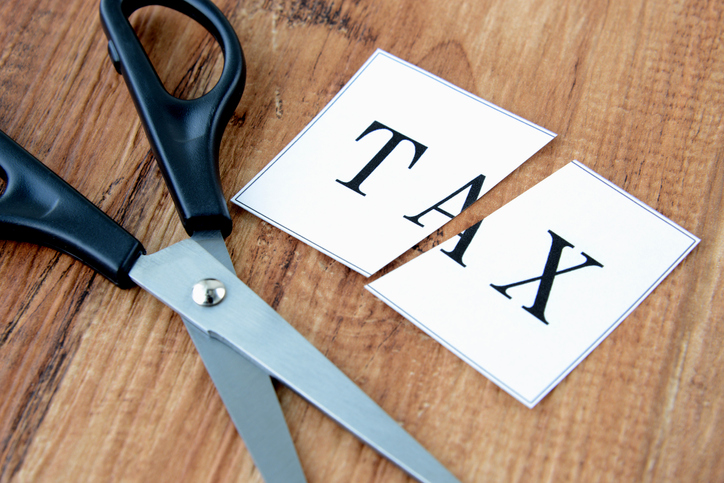Spotlight 57 – Disguised remuneration: tax avoidance by selling future business revenues to a revenue service trust
We have advised a number of clients in relation to claims against their professional advisers and promoters following advice from that third party relating to the use of tax avoidance schemes or other tax mitigation schemes/ strategies, often disguised remuneration strategies, including EFRBS, EBT, SHIPS, Contractor Schemes, Film Schemes and Remuneration Trusts. That has resulted in litigation in a number of cases and a number of recent successes.
A further disguised remuneration scheme has come to HMRC’s attention. Their view, as set out in Spotlight 57 is that HMRC “strongly believes these arrangements do not work. We’ll challenge anyone promoting such arrangements and investigate the tax affairs of all users.”
The scheme in question is highlighted in Spotlight 57. Specifically, HMRC has stated that it is “aware of an arrangement where a business may enter into an agreement with a trust and claim to have sold the rights to its future revenue to the trust. The revenue is not included in the business’s accounts (meaning no tax is paid on it) and the transfer of funds to the trust is not disclosed to HMRC.”
They have stated that “Users of this and similar arrangements may find they need to pay considerable fees, yet still have to pay tax, interest and possibly a penalty on any tax that’s claimed to be avoided.”
HMRC set out how the arrangement is claimed to work. They say:
“The business enters into an agreement with a revenue service trust, with offshore-based trustees. The business could be a:
- self-employed individual
- partner in a partnership
- company
- company director
Under the agreement, the trust becomes entitled to a percentage of the business’s future revenue, which the business will pay to the revenue service trust. It’s claimed that the business does not have to disclose the transfer of funds in their accounts.
As the business no longer holds this revenue, it’s not included as part of the business’s taxable profit and so, no tax is paid on it.
After the revenue has been transferred, the trust will take one of two routes (minus a fee retained by the trust for the promoter of the arrangement). They will either:
- transfer the revenue to a personal management company controlled by the business owner, who can then invest or draw on the transferred amounts
- send the revenue directly from the trust to the business owner, where the funds will be labelled as ‘loans’, ‘fiduciary receipts’ or something else so that no tax is paid on them”
HMRC’s view is clear: “this and similar arrangements do not work. If you’re using these arrangements, you’ll be challenged by HMRC and it could result in:
- the following charges for company and company director users:
- Corporation Tax or other company tax charges
- Income Tax
- National Insurance contributions
- Inheritance Tax
- anti-avoidance legislation causing a tax liability to occur on the shareholders of the company
- the following charges for self-employed individuals and partners in partnerships:
- Income Tax
- National Insurance contributions
- Inheritance Tax
- the trust being liable to tax on the income
- interest being charged on any tax paid after the statutory due date and penalty charges may occur”
They conclude: “If you’re using this or similar schemes or arrangements, HMRC strongly advises you to withdraw from it and settle your tax affairs to prevent building up a large tax bill.”
Litigating Tax Schemes
The purpose of this article is to highlight Spotlight 57 and HMRC’s concerns about this particular specie of tax avoidance. As already noted, it is HMRC’s view that they strongly believe these arrangements do not work.”. The writer is not a tax advisor, and it may be that HMRC are mistaken ie it may be that the scheme works. However, one would expect Follower Notices or APN’s (if its DOTAS) to follow in light of the recent Spotlight.
If you have entered into a scheme such as that highlighted by HMRC (or any other), we are able to consider the merits of whether you may have a claim against a third party (if necessary with the support of expert third party tax advisers and/ or tax counsel) including whether these arrangements do work and if not, whether you were properly advised. Indeed, in rare occurrences, we have advised clients in circumstances where the scheme may achieve some of the stated benefits but the individuals concerned were still negligently advised, since the scheme was not suitable for their needs.
We have advised numerous clients in relation to claims against their professional advisers and promoters after they engaged in tax avoidance schemes or other tax mitigation schemes/ strategies, including EFRBS, EBT, SHIPS, Contractor Schemes, Film Schemes and Remuneration Trusts including disputes about the loan charge.
We have successfully won significant damages from advisors and/ or promoters where, for example, the advice given was negligent, or a breach of their fiduciary duties, or, there was a breach of statutory duty (e.g. under FSMA).
If you want to discuss matters in greater detail, please contact Tom Maple on 0118 951 6200 or email [email protected].
Disclaimer: this article is not to be relied upon as legal advice. The circumstances of each case differ and legal advice specific to the individual case should always be sought

